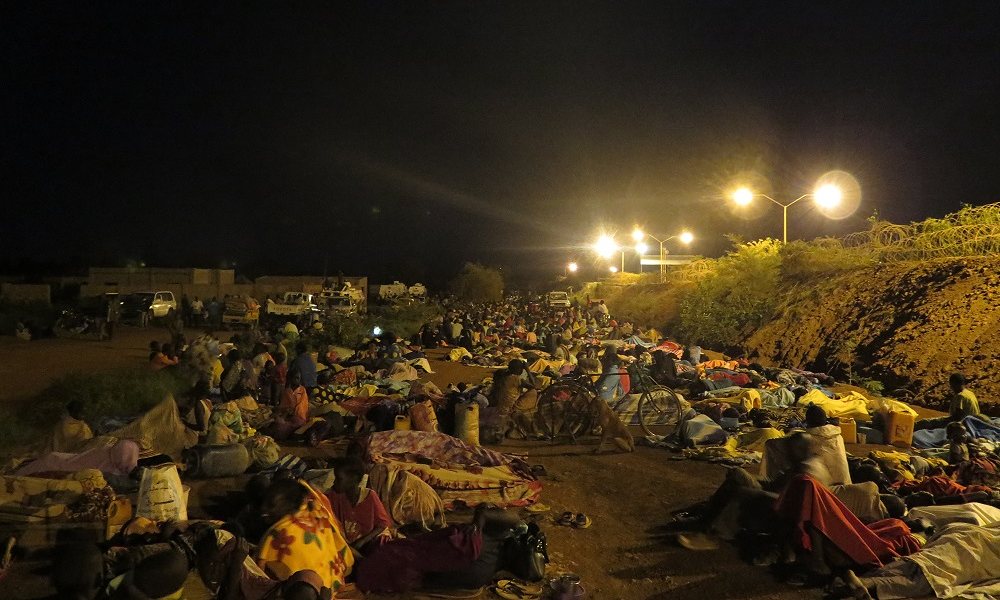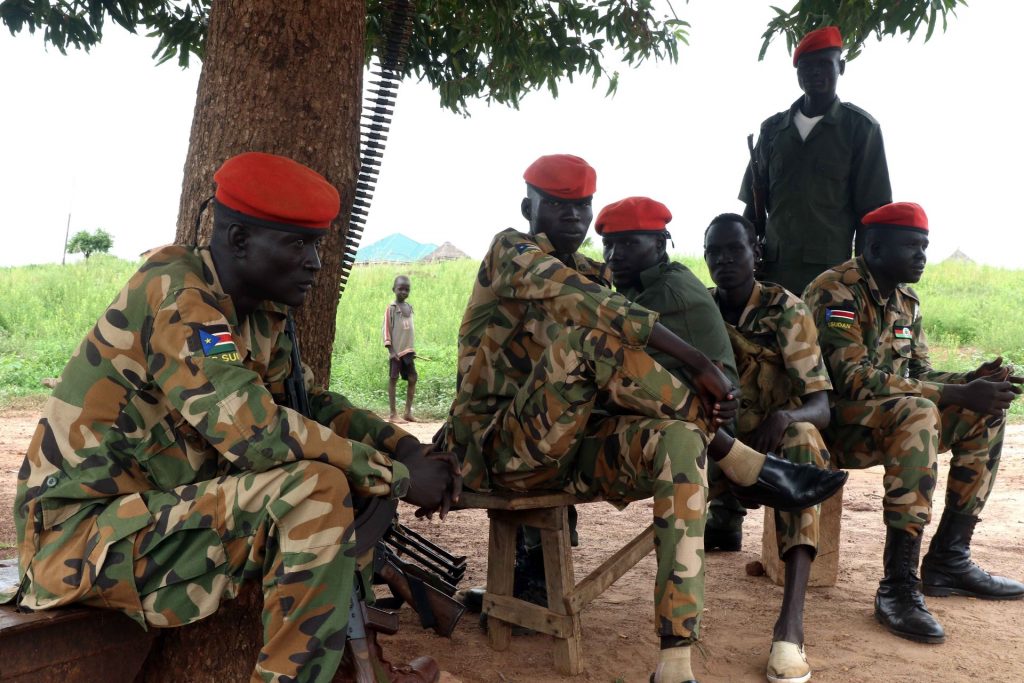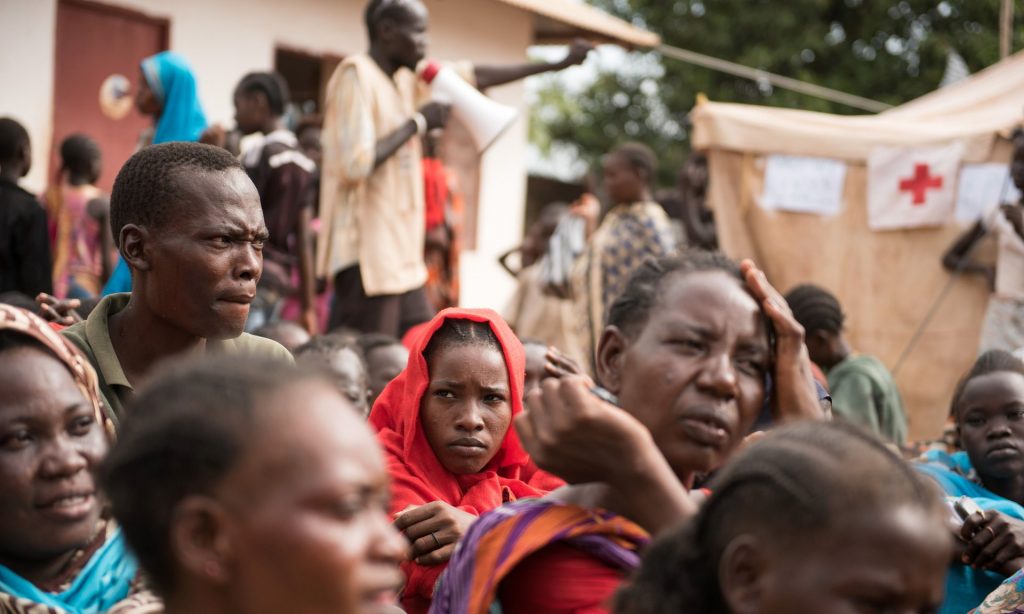A two-year-old boy was shot in the arms of his neighbour. A woman was dragged into the streets and raped. Others were killed in their homes trying to protect their properties from looters. Eyewitnesses seeking refuge at the compound of the Catholic cathedral in Wau, in north-west South Sudan, have described horrendous acts of violence after heavy fighting erupted in the town on 24 June.
They recounted how soldiers from the army (the SPLA) and young people from the Dinka ethnic group attacked neighbourhoods inhabited by ethnic Fartit.
“We were at home when we heard the sound of gunfire,” said Paulino, a Fartit government worker who didn’t want to give his surname. “We saw soldiers from the SPLA shooting at civilians.” Paulino grabbed his children and ran for safety towards the cathedral, but not before he saw soldiers gun down three members of his family.
According to the UN, more than 70,000 people have been displaced and dozens reportedly killed in what is likely to be the worst violence South Sudan has seen this year.
“In every street, you could see three to four bodies,” said Mariana Isidoro, a medical worker who helped bury five of her neighbours at an improvised cemetery in the cathedral’s grounds.
Attacks against civilians, rather than direct confrontations between armed groups, have been a defining feature of South Sudan’s civil war, which began in December 2013. But the spread of violence to Western Bahr el Ghazal – a region that was spared during much of the conflict – raises doubts whether a peace deal signed in August last year can address the country’s ethnic conflict over land and power.
The violence in Wau comes two months after President Salva Kiir, an ethnic Dinka, and rebel leader Riek Machar, a Nuer, formed a new power-sharing transitional government. The deal, which divided up control of the presidency, the cabinet and the 10 states, is regarded by some as merely settling the scores between the two men and their loyalists, while failing to address the root causes of violence or to safeguard the rights of dozens of other ethnic groups.
“There is no peace deal, only delaying tactics by the government. They are counting on the international community to release money in support of implementing the peace agreement,” said a researcher who has worked in South Sudan for several years and asked not to be named. “In the meantime, the state, through the SPLA, is continuing with its military operations against predominantly non-Dinka communities.”

Photograph: Courtesy of Unmiss
The incident in Wau was preceded by months of rising tensions between the Dinka, who are South Sudan’s largest ethnic group, and the Fartit, who form the majority of the local population around Wau. Thousands of young Dinka from a neighbouring region are said to have recently migrated to the town in what locals see as a government-backed campaign to increase Dinka control over land and resources in areas traditionally inhabited by other groups.
The ethnic divide in Wau is obvious. In the days after the violence, streets in the town’s northern areas, inhabited mostly by Dinka, were lively. Pick-up trucks mounted with machine guns and full of soldiers toting AK-47s, mostly Dinka, patrolled the area. In contrast, the southern and western parts of town, home to the Fartit, were deserted after people flocked to churches and the UN base for protection.
The SPLA’s commander in Wau denied that his soldiers had killed any civilians. “It was the rebels who infiltrated the town,” said Lt Gen Gabriel Jok Riak, one of six government and rebel commanders placed under UN sanctions for human rights abuses committed during the first year of the conflict.
The commander’s words fit the narrative the government uses to explain the rise of ethnic clashes between Dinka and non-Dinka communities.
In the adjacent region of Western Equatoria, young men from the Zande ethnic group rose up last year when Dinka cattle herders, protected by the SPLA, were blamed for occupying local farmland. In the northern town of Malakal, Dinka SPLA soldiers attacked a UN camp in February, targeting ethnic Nuer and Shilluk. The latter accused the government of annexing parts of their ancestral land. In both Malakal and Western Equatoria, the government blamed opposition forces for inciting violence.

Photograph: Simona Foltýn
“The official narrative is that ‘rebels’ are causing instability,” said the researcher. “But the reality is that young local men have been targeted by the SPLA as potential dissidents and are then forced to go into the bush.”
Machar’s opposition reportedly admitted to engaging with the SPLA south of Wau to help civilians evacuate, but denied entering the town. The UN estimates that around 35,000 people, many of them young men, have fled to the bush, while the same number have been displaced within the town. Aid agencies have started providing humanitarian assistance to the displaced.
Many in Wau are still fearful about returning to their homes, having lost confidence in the peace deal and in their government’s ability to protect them. “I’m calling on the government of South Sudan to stop these problems,” said Rozana Isidoro, the mother whose two-year-old boy was killed in the violence. “We don’t want tribalism. We want peace and stability.”

